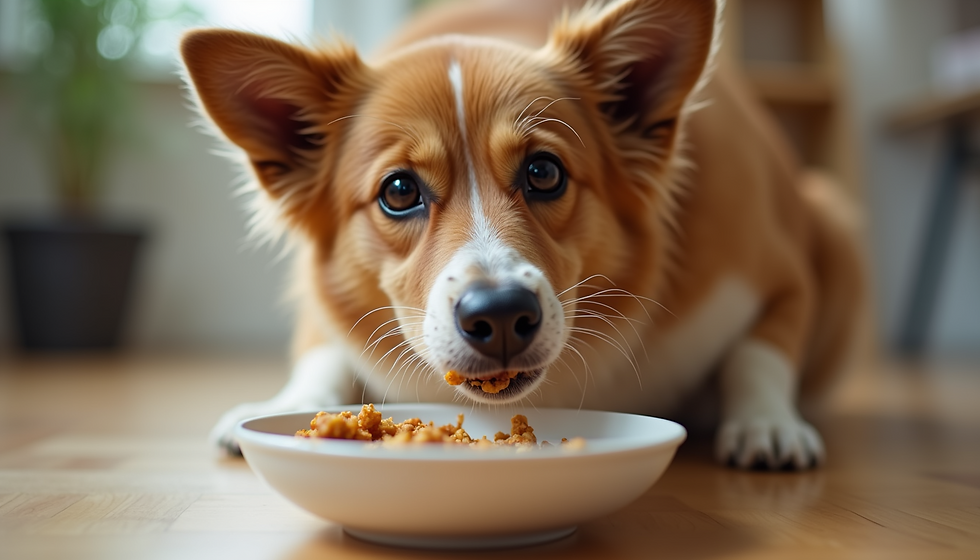Why My Horse Eats Hay 24/7: The Benefits of a Forage-Based Diet
- Chelsea Judge
- Sep 5, 2025
- 2 min read
When it comes to feeding horses, simplicity often wins. At CKG Canine and Equine Services, our philosophy is rooted in feeding the way nature intended—and for horses, that means forage first. In fact, my own horse lives on a forage-only diet, and here's exactly why.
🌾 What Is a Forage-Based Diet?
A forage-based diet centers around high-quality hay and pasture, with minimal to no grain. It prioritizes feeding the horse’s digestive system as nature designed it—to slowly and continuously graze, rather than eat a few large meals a day.
🐎 Why I Choose a Forage-Only Diet
My horse has access to all-you-can-eat hay, 24/7—and yes, it works beautifully. Here's what his daily diet looks like:
Free-choice Alfalfa and Orchard Grass Hay: These hays provide variety in texture, flavor, and nutrient balance. Alfalfa offers higher protein and calcium, while orchard grass provides the fiber-rich foundation his gut needs.
Forage-Based Pelleted Feed: I use a forage pellet as a carrier for his Dynamite specialty supplements. This allows me to provide targeted nutritional support without adding unnecessary sugars or starches from traditional grains.
💡 Why This Works
1. Supports Digestive Health
Horses have a delicate, slow-moving digestive system that relies on constant fiber intake. Long gaps between meals can lead to ulcers, colic, or behavioral issues. By feeding hay around the clock, I’m mimicking their natural grazing behavior and reducing stress.
2. Reduces Risk of Metabolic Issues
Grain-heavy diets can spike insulin and blood sugar levels, contributing to metabolic disorders like laminitis or Cushing’s. A forage-only approach supports steady energy and a healthier weight.
3. Promotes Mental Wellness
Access to forage keeps horses mentally engaged and satisfied. Boredom and stress are major contributors to behavioral problems like cribbing, pacing, or anxiety. A full hay net is better than a stall toy any day.
4. Encourages Natural Chewing & Saliva Production
Chewing hay generates saliva, which is essential for buffering stomach acid and supporting gut health. More chewing = better digestion.
🧪 The Role of Supplements
Even with high-quality forage, some nutrients may still fall short depending on your region, hay quality, and your horse’s individual needs. That’s where my Dynamite supplements come in—delivered through a forage-based pellet instead of grain.
This way, I’m targeting what my horse truly needs without compromising the simplicity and stability of his forage-first diet.
🌿 Final Thoughts
A forage-only diet isn't just a trend—it's a return to what horses were built to thrive on. My horse is healthier, happier, and more balanced because of it. With thoughtful hay selection and smart supplementation, you can ditch the grain and give your horse exactly what they need—without the fluff.
Want help designing a forage-first plan for your horse? Reach out—we’d love to help.






Comments